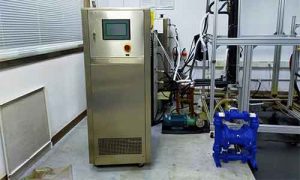water cooling water
Water Cooling Water: Efficient Heat Management in Various Applications
Water cooling systems have long been a preferred method for managing heat in various applications due to water’s inherent properties as a heat transfer medium. This article delves into the workings of water cooling systems, their applications, the importance of maintenance, and the strides being made towards more sustainable and efficient cooling technologies.

How Water Cooling Systems Work
Water cooling systems operate on a simple yet effective principle: water’s ability to absorb and transfer heat. In these systems, water circulates through a network of pipes, absorbing heat from the source—be it an engine, industrial machinery, or electronic components—and carrying it to a radiator or cooling tower where the heat is dissipated into the environment.
The efficiency of water as a cooling medium stems from its high specific heat capacity, meaning it can absorb a significant amount of heat before its temperature rises significantly. This property, coupled with water’s ability to conduct heat, makes it an ideal medium for cooling applications.
Applications of Water Cooling Systems
Water cooling systems are employed in a wide array of industries and applications:
Automotive Engines: Car engines generate a considerable amount of heat during combustion. Water cooling systems absorb this heat and dissipate it through the radiator, preventing the engine from overheating.

Industrial Processes: In manufacturing and processing plants, water cooling systems are used to maintain optimal temperatures for machinery and processes, ensuring efficiency and preventing damage due to excessive heat.
Data Centers: With the rise in computational power and density in data centers, water cooling has become a go-to solution for managing the heat generated by servers and other computing equipment. Immersion cooling, a sub-type of water cooling, is particularly effective in these high-density environments.
Maintenance and Sustainability
Proper maintenance of water cooling systems is crucial for their efficiency and longevity. Regular checks for leaks, clogs, and general wear and tear help prevent system failures and ensure optimal performance.
In terms of sustainability, water is a finite resource, and its use in cooling systems must be managed responsibly. Strategies such as closed-loop systems, where water is recirculated with minimal loss, and the treatment and reuse of water within the system, help conserve this precious resource. Additionally, the use of non-potable water sources, such as treated wastewater or captured rainwater, for evaporative cooling systems further reduces the strain on freshwater resources.

Market Trends and Growth
The market for water-based heating and cooling systems is experiencing significant growth, driven by the demand for energy-efficient and sustainable solutions in both residential and commercial sectors. Advances in technology have made these systems more versatile, reliable, and easier to install, catering to a wide range of project requirements.
In the commercial vertical, water-based systems offer superior performance, precise temperature control, and uniform distribution of heat or cool air, resulting in enhanced comfort levels. The emphasis on energy efficiency and sustainability in the commercial sector is driving the adoption of these systems.
In conclusion, water cooling systems are a vital technology for managing heat in various applications. Their efficiency, driven by water’s heat absorption and transfer properties, makes them a preferred choice in many industries. With a focus on sustainability and energy efficiency, the market for water-based heating and cooling systems is poised for continued growth, offering innovative solutions for a wide range of cooling needs.
Related recommendations
thermic fluid system
257Introduction to Thermic Fluid SystemsA thermic fluid system, also known as a thermal fluid system or heat transfer fluid system, is a closed - loop or open - loop configuration that uses a heat -...
View detailswater cooled heat pump chiller
577Water-Cooled Heat Pump Chiller: Efficiency and Sustainability in HVAC Systems Introduction to Water-Cooled Heat Pump Chiller Systems Water-cooled heat pump chillers are sophisticated sys...
View detailsHow to Choose Heating and Cooling Equipment According to the Parameters of the Reactor?
1165How to Choose Heating and Cooling Equipment According to the Parameters of the Reactor? Refrigeration and heating equipment is a kind of temperature control equipment that is widely used now...
View detailsWhat is the reason why the temperature of industrial air cooled chiller cannot drop?
1332What is the reason why the temperature of industrial air cooled chiller cannot drop? When the temperature of an industrial air-cooled chiller cannot drop, we usually conduct troubleshoo...
View details
 LNEYA Chiller
LNEYA Chiller







HelloPlease log in